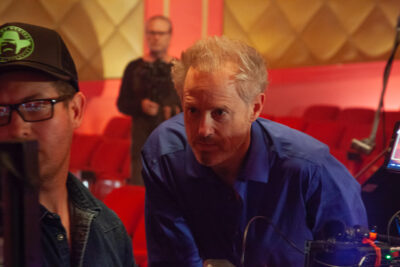
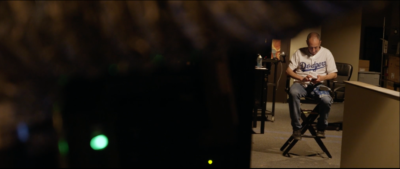
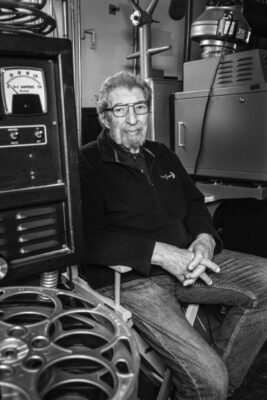
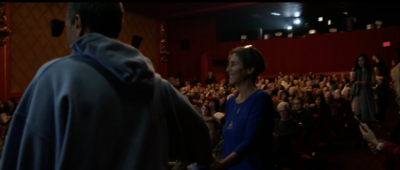




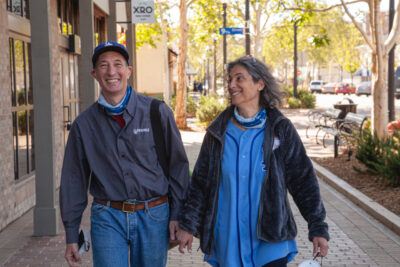
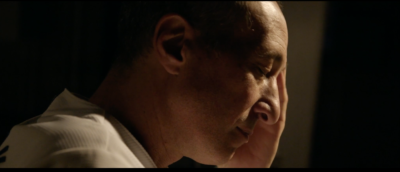
What happens when an object of suspicion becomes a case of obsession? Winner of the Best Director prize earlier this year at Cannes, Park Chan-wook (Oldboy, The Handmaiden) returns with Decision to Leave, a seductive romantic thriller that takes his renowned stylistic flair to dizzying new heights. As of this writing the film’s Rotten Tomatoes’ score is 93%, with the most sophisticated critics kvelling about the film’s artistry and suggesting repeat viewings. We open the film Friday at the NoHo and Glendale with additional engagements planned in the subsequent weeks around town.

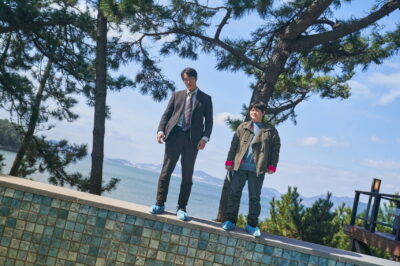
Only in Theaters filmmaker Raphael Sbarge kindly penned a director’s statement to share with you:
“I grew up in New York City, which at the time felt like a city filled with artists and colorful, intellectual, people. My father was an artist and a filmmaker, my mother, a Broadway costume designer. When I met the Laemmle family, they felt very familiar to me—their caring for one another, their openness and curiosity, their shared passion for art, music and culture, and their recognition that those things make life richer.
“It was always the Laemmle family that drew me to this story.
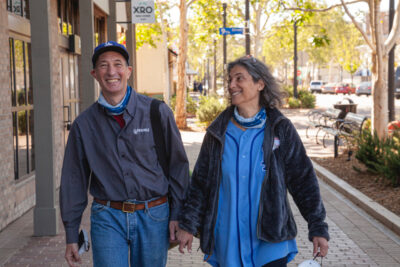
“Our plan was to highlight the Laemmle family’s unbelievable legacy and impact on the motion picture industry and set it against the slowly changing landscape. What we didn’t realize was the extent to which we were poised to witness history unfold. Not long after we started, we realized the story was much bigger than we had imagined.
“We ended up following the family for over two-and-a-half years, during which the Laemmle story became a microcosm of the macrocosm. The question was, where was it all headed?
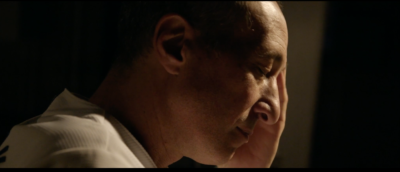
“Multiple generations of a family had built a business on the core principle of celebrating artists. There was something so innate, so essential about the Laemmle family mission, which was ever more remarkable in a world that often undervalues artists, even though artists help us see the world, interpret it, and give it meaning.
“In a world fraught with corporate values and shareholders, this was a family business that wasn’t driven only by money, but by people who understood the importance of planting a tree for the next generation.
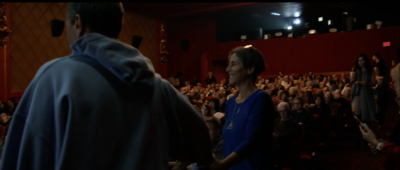
“We feel quite privileged to have been there, during what was the most tumultuous 24-month period in the theater’s history. We found ourselves quite suddenly in the “hot part of the flame,” witnessing the Laemmle’s’ challenges, which were echoed over and over by theaters around the country and around the world.” ~ Raphael Sbarge
Mr. Sbarge and cast member Greg Laemmle will participate in a Q&A following the 7 o’clock screening of Only in Theaters at the Monica Film Center on November 14 as part of the Reel Talk with Stephen Farber series. The regular engagements begin November 18 at the Royal and other Laemmle venues.
Celebrate moviegoing and enjoy some monetary time travel this Saturday, September 3 by participating in National Cinema Day when movie theaters across the nation will charge prices circa 1980 — three bucks per ticket! This applies to any film at any time on Saturday, from François Ozon’s latest, Peter Von Kant, to Sam Raimi’s Spider-Man: No Way Home – The More Fun Stuff Version, from the new A24 comedy about the underground comics scene, Funny Pages, to Javier Bardem’s Goya-winning The Good Boss. Catch the summer sleepers Mrs. Harris Goes to Paris, Fire of Love, RRR or Hallelujah: Leonard Cohen, A Journey, A Song while they’re still on big screens.
They say you can’t get something for nothing, but National Cinema Day is close! Super cheap movie tickets and, oh, did we mention the air conditioning?
